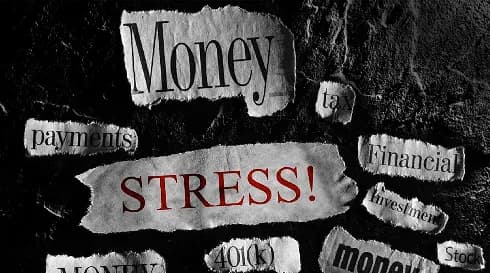Game-Changing Strategies to Conquer Money Stress – Here’s How You Can Achieve Lasting Peace of Mind!
Learn practical, actionable strategies to reduce financial stress and build lasting financial peace

Top Strategies to Tackle Financial Stress Like a Pro
Hey everyone,. Today, we’re diving into an issue that hits close to home for so many Americans: financial stress. As we approach National Stress Awareness Day, let’s take a minute to check in on where we’re at financially and mentally.
It's no secret—money stress is everywhere. Almost 88% of Americans say they’re feeling financial strain, and 65% actually name it as their number one source of stress. This hits younger generations even harder, with a surprising 62% of Gen Z experiencing financial anxiety at least three days a week. Rising living costs aren’t helping; they’re only adding to the mental and physical strain that money worries bring. But here’s the thing: we don’t have to let it control us. Let’s look at some strategies that have helped me (and many others) get a grip on finances and, by extension, regain a sense of peace.
Facing Financial Stress Head-On
Here’s a big part of the problem: financial stress often stems from how we spend. It’s easy to feel overwhelmed when we’re spending in ways that don’t match our goals. My advice? Take a hard look at where your money is actually going. It might seem intimidating at first, but getting a clear picture of your spending habits is the first step toward meaningful change.
A simple tool I recommend is what I call the “48-hour rule.” If you feel an urge to buy something that isn’t essential, wait 48 hours. This pause allows you to really think it through and see if it’s necessary. It also helps you get into the habit of intentional spending rather than impulse buying. Over time, this shift alone can drastically reduce financial stress because it forces you to consider whether a purchase aligns with your bigger goals.
Empowering Yourself with Knowledge and Automation
Once you’ve looked at where your money is going, start tracking it. There are plenty of tools for this—Quicken, or even just the spending trackers that come with many bank accounts or credit cards. When you’re clear on your inflows and outflows, you’re in control. Knowledge is empowering, and tracking spending will give you the clarity you need to make better decisions. This clarity alone can go a long way toward reducing your financial anxiety.
Another powerful tool is automation. For example, setting up an automatic transfer into a savings account each month can help you save without having to think about it. When you “pay yourself first,” you’re essentially building a habit of consistent savings. It’s easy to ignore that money in a separate account, but believe me, it adds up. Over time, this consistency not only builds your savings but also lowers your stress since you’re making progress toward your goals without constant effort.
Now, some people wonder about emergency funds. I have mixed feelings here—it’s not the best way to grow wealth, but there’s something to be said for the peace of mind it brings. Having a financial cushion, even if it’s just three to six months of expenses, can reduce anxiety. It’s like a buffer that helps you feel more secure and sleep better at night, knowing you have something to fall back on if needed.
Mental Health and Money: The Overlooked Connection
It’s time to talk openly about something that doesn’t get enough attention—the link between mental health and financial health. Financial stress takes a toll not only on our wallets but on our minds. It affects sleep, can lead to headaches, and even affects how we interact with others. And while it can be hard to bring up money worries, talking about them openly—especially for us men who might avoid this topic—helps break down the stigma.
Talking about money stress isn’t a sign of weakness; in fact, it’s a crucial first step to feeling more in control and less isolated. We all face financial challenges, and the more we open up, the better we can tackle these issues together.
Staying Calm During Market Swings
If you’re an investor, market fluctuations might add to your financial stress. The trick here? Focus on the long-term. I buy solid companies based on fundamentals and then—this is the key—I don’t check their stock prices every day. Constantly watching the market only adds to the anxiety. Instead, if you believe in the strength of your investments, trust the process. Time will work in your favor if you focus on the fundamentals.
Practical Steps Toward Financial Peace of Mind
For anyone who’s currently weighed down by financial stress, my advice is to start small. Make one small, disciplined choice at a time, and celebrate those “little wins” along the way. Every small success builds confidence, and over time, these small actions turn into real control over your financial future.
Building resilience financially is more than just managing money—it’s about giving yourself the freedom to face life with confidence and clarity. And on this National Stress Awareness Day, let’s remember that financial peace of mind is within reach. One choice at a time, we can build habits that empower us, reduce our stress, and lead us toward a stable, secure future.





